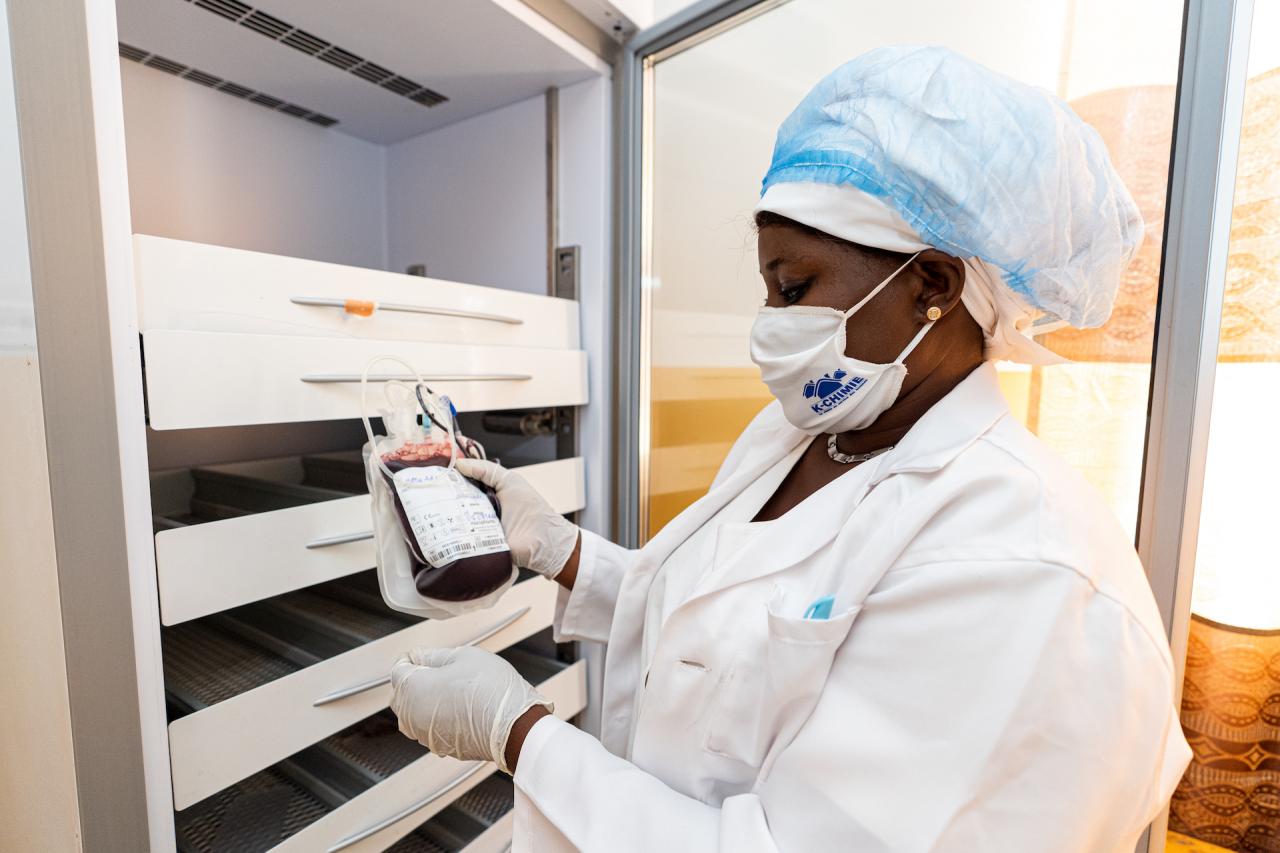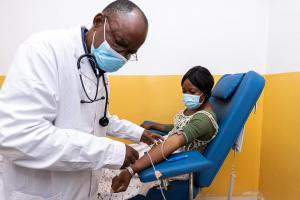Overcoming blood shortages
“Blood cannot be manufactured. It is only through donations that it reaches those in need,” says Dominique Linguedze, a voluntary blood donor in Brazzaville, the riverside capital of the Republic of the Congo. “To give my blood is to give a little of myself. It makes me feel like a heroine.”
“To give my blood is to give a little of myself. It makes me feel like a heroine.”
Dominique Linguedze, a voluntary blood donor
With WHO’s support, blood donation supplies in Congo have increased by 46% over the past three years, as the country seeks to meet its annual requirement of 150,000 pouches on average.
The number of blood donation sites nationwide has also increased from 36 to 42, with five more sites due to become operational in the near future, while a decentralized, community-focused approach has led to 46% of donations being obtained from voluntary donors like Dominique.
Dr Serge Oscar Mokono, the director of Congo’s National Blood Transfusion Centre, says the World Health Organization (WHO) has been an “essential partner” in his country’s ongoing efforts to ensure that no patient dies due to a lack of blood.
“When we have technical challenges or other important issues to tackle, WHO provides us with experts to support us in our activities.”
Dr Serge Oscar Mokono, Director of Republic of Congo’s National Blood Transfusion Centre
The Organization has helped us to develop our strategies and directives and also provides considerable moral support.”

“Our technical expertise helps to ensure that there is safe and sufficient blood supply and that local authorities have perfect control of the blood supply chain,” says Dr André Loua, Regional Advisor on Blood Safety at the WHO Regional Office for Africa.
Dr Sarah Mbao Bogo, a gynaecologist at Blanche Gomes Mother & Child Hospital in Brazzaville, knows only too well the importance of the timely availability of blood. “Each week, we still have at least three to four complications linked to haemorrhaging,” she says. “With enough blood, we can avoid numerous tragedies.”




